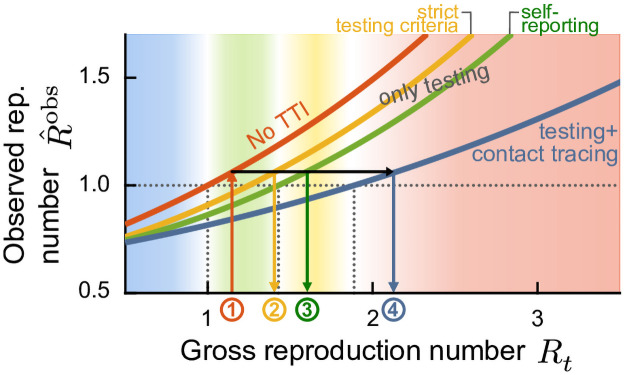Fig 9. Test-trace-and-isolate (TTI) policies allow for greater freedom (quantified by the gross reproduction number Rt) while observing the same reproduction number .
Systematic efforts to slow down the spread of the disease, such as mass testing (random screening) and contact tracing, allow decreasing the observed reproduction number of the disease. For observing the same outcome in , the gross reproduction number Rt would increase, or, in other words, individuals would be allowed to increase their potentially contagious contacts. Therefore, we extrapolate the Rt allowed in a full TTI setting at low case numbers and determine the equivalent Rt trends required to reach the same in different regimes, starting from the raw value considering no TTI (red curve). Assuming that the relationship between Rt and is exponential (Eq (35)), we can obtain the expected Rt trends in the low-case numbers TTI regime. Starting from the raw Rt curve (red, 1), we can obtain Rt in all the other possible regimes: under strict testing criteria (yellow, 2), self-reporting (green, 3), or full TTI (blue, 4). Adapted from [18].

